Bruce Dowbiggin
Can Conned: Making Culture For Others
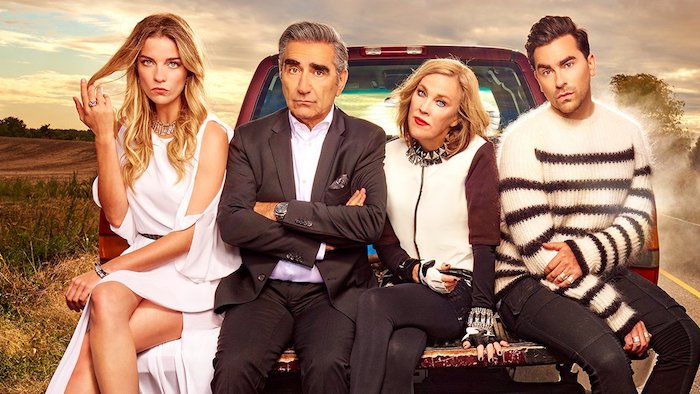
Is a television series shot in St. John’s about a police dog Canadian content?
Is a Hallmark romantic series shot in Toronto Canadian content?
Is Schitt’s Creek, starring top Canadian performers, Canadian content?
Is a Kevin Costner series shot in the Alberta foothills Canadian content?
For the purposes of attracting funding from federal, provincial and municipal governments they all qualify as Canadian content. Why? What distinguishes these popular entertainment vehicles as emblematic of the modern nation whose taxpayers fund the projects?
Look, we have no issue with Canada hosting a variety of profitable, popular film projects. We have family members who draw a paycheque from them. A healthy TV/ film/ theatre industry has much to recommend it.

Then why do we need to shroud it in the garb of Canadian culture? When it was Anne of Avonlea or even The Beachcombers there were recognizable Canadian themes and performers. Now, however, with the success of international marketing, Schitt’s Creek and Hallmark films are exemplars of a uni-culture, a smash-up of comedic tropes, romantic plots and cop shows that could come from anywhere.
Yes, they sell. But do they sell anything Canadian? (For these purposes Quebec has a unique argument for its distinctiveness.) Hardly. But that is not going to stop the gravy train of subsidies, grants and funds for Can Con. If Canadian culture is now like Canadian oil or Canadian cars— indistinguishable from any another— who’s to stop it? Not this federal government whose PM was pimped by the husband of CBC’s VP of English services in 2015.
Which brings us to the one exemplar whose entire raison d’être is reflecting the country. CBC. Yes, the Mother Corp, conceived in the flush of young nationhood, coming of age. Reaching from sea to sea-to-frozen-sea, the mandate of CBC is to reflect the fragile ribbon of a nation state hovering north of America. To get to the nooks and crannies no profit-based company would dare.
And for a long time CBC seemed to fit that mandate. CBC made shows that reflected the peculiarities of Canada. God knows no one else would do documentaries about ships passing through the St. Lawrence Seaway, the spring breakup in log-rolling season or lonely freight trains chugging through the Crowsnest Pass. It was earnest, dull. But it was Canada’s first marriage. These things happen.

But then Canada’s eye was caught by the sexy harlots of the entertainment industry in the 1960s. Like the love interests in Pierre Trudeau’s life, they were irresistible. Who had ever paid attention to Canada outside William Shatner as Captain Kirk? Suddenly Canada’s purveyors of culture dropped the first marriage and either headed south to hang with the cool kids or tried to make American-looking programming. Street Legal. DeGrassi Jr. High. DaVinci’s Inquest.
Gradually, CBC management began to see its real audience as a market like Hollywood or New York City, not Thunder Bay. It became obsessed with making saleable uni-culture entertainment. Often with Canadian actors and Canadian backdrops. But not so much that they would annoy Americans.
As the entertainment department morphed in the era of Trudeau the First, CBC clung to its news and current affairs departments as the tease when they went to Ottawa for funding. To be distinctive the news division recorded the boring bits of Canadian-ness. Our multi-party systems, our healthcare, our equalization schemes. We give you notwithstanding clauses. You give us millions. (Then billions.)

But then CBC was overtaken by an emerging private broadcast side and social media. There were others who could do election nights and November 11 memorials, sifting through the stuff that had always been CBC’s exclusive. By the time Trudeau the Second emerged, CBC television was a husk, a shell to be filled in as budgets allowed. Hell, they sold the Hockey Night in Canada brand to Rogers.
In this state, Skippy saw an opportunity. Many Canadians still had affection for CBC, long after they stopped watching it. Why not promote his globalist garbage and Woke insanities inside CBC? Shove aside trusted names and reputations? Pump the unions’ agendas? Disguise what had once been journalism with a veneer of government DEI policies?
Just for good measure, have the CBC executive director do her job while working from New York City. Oh, and cut the regional outlets to the bone.
Only problem is that people are finally noticing that CBC is now a state-sponsored outfit engaging in imitation journalism. Twitter supremo Elon Musk applied a state-funded tag to CBC’s account. (In response to CBC huffing and puffing, Musk reduced CBC government funding from 70 to 69 percent in the tag.) Unlike the Canadian-content racket— that makes money— it serves no purpose.
Now, Conservative leader Pierre Poilièvre has made it an article of faith to take a blade saw to the CBC budget, hacking as much as a billion from the operating funds. Let the private side have an open shot at filling the gap. Get CBC’s foot off the neck of social media and advertising.
Unsurprisingly, there are howls of protest from those who contend that CBC is still relevant. Columnist Sandy Garrasino sniped on Twitter, “Remember that Poilièvre would give his eye teeth to have the notorious liars at FOX reporting on Canada. He doesn’t hate bias at all. He hates real reporters.” Here’s Max Fawcett taking one for the team: “Pierre Poilièvre wants to destroy the CBC… Why? Because as recent polling shows, the less informed Canadians are, the more likely they are to support his party.”
Strongly worded memo to follow. Problem its that the time servers in Ottawa are the last to know it’s over. Two percent of the population considers CBC still relevant after stunts like shivving Wendy Mesley in public. Keep radio. Take a hammer to CBC.ca. Can the Can Con. Let the other guys have a chance.
Sign up today for Not The Public Broadcaster newsletters. Hot takes/ cool slants on sports and current affairs. Have the latest columns delivered to your mail box. Tell your friends to join, too. Always provocative, always independent. https://share.hsforms.com/16edbhhC3TTKg6jAaRyP7rActsj5
Bruce Dowbiggin @dowbboy is the editor of Not The Public Broadcaster A two-time winner of the Gemini Award as Canada’s top television sports broadcaster, he’s a regular contributor to Sirius XM Canada Talks Ch. 167. Inexact Science: The Six Most Compelling Draft Years In NHL History, his new book with his son Evan, was voted the seventh-best professional hockey book of all time by bookauthority.org . His 2004 book Money Players was voted sixth best on the same list, and is available via http://brucedowbigginbooks.ca/book-personalaccount.aspx
Bruce Dowbiggin
How Did PEI Become A Forward Branch Plant For Xi’s China?

scoopercooper DEA Busts Canadian Narco Whose Chinese Supplier Promised to Ship 100 Kilos of Fentanyl Precursors per Month From Vancouver to Los Angeles
https://x.com/scoopercooper/status/1945489327892365716
The Chinese Communist Party is flooding America with dirty pesticide marijuana disguised as THCa hemp flower and hemp-derived products sold in smoke shops.
Official Silence on Medical Waste From PRC-Linked Monasteries Must Be Broken .
We were talking very recently to a Toronto friend about the threat of drug trafficking—in particular fentanyl— to the U.S. as a threat to Canada’s sovereignty. This businessman, who does considerable international trade, shrugged and said it’s no big deal. He’d heard the Yanks had only caught 59 pounds at the border between 2022-2024. To his eye, things were under control.
This statistic was, of course, the Liberals’ standard talking point in the 2025 election— part of Mark Carney’s What, Me Worry? appeal about China to anxious Boomers. My friend still repeating this twaddle is a tribute to the staying power of the Liberal’s media stranglehold in the face of evidence that has been out there courtesy of reporters such Sam Cooper and Garry Clement since 2015.
As the above stories illustrate drug trafficking and money laundering are believed to be rampant in Carney’s Canada— with the Chinese in the forefront and immigrant students-turned-truckers hauling the narcotics across the border. The fentanyl version of El Chapo and other confederates live openly in the Toronto area. As the recent bust promising 100 kilos a month to L.A. makes clear, the 59-pound fentanyl deflection insults the work of those who have been labouring under dangerous conditions to highlight the Liberals’ lassitude on crime.
As we wrote when Justin Trudeau was still swanning around as PM: “The sitting Canadian prime minister, who praised the Chinese form of governing before he reached the PM post, has been seen in photos with underground Asian gang figures. As were previous Liberal leaders like Jean Chretien who made no secret of his lust for the Chinese market. Chinese money was used to build extensively in Chretien’s Shawinigan riding.
Donations to Trudeau from all across Canada constituted up to 80 percent of the riding’s contributions that year. In May 2016, one such fundraiser saw Trudeau hosted by Benson Wong, chair of the Chinese Business Chamber of Commerce, along with 32 other wealthy guests in a pay-for-access event. The patterns exposed by Cooper finally prompted a commission by Quebec justice Marie-Josée Hogue looking into Chinese interference in Trudeau’s successful 2019 and 2021 elections.
Hogue later reported that Chinese interference in those elections did undermine the rights of Canadian voters because it “tainted the process” and eroded public trust. So petrified was Trudeau of the full Hogue Report that he prorogued parliament for three months and handed in his resignation rather than test his 22 percent approval rating in a Canadian election.”
What the rest of the world knows— but Canadian officials refused to tell their citizens during the federal election campaign— is that Canada has been corrupted by openly approving of China’s method of controlling their citizens worldwide and placing operatives within Canada’s government.

The story of how Liberal candidate Paul Chiang told a Chinese-language media news conference that people could cash in if they turned in Conservative Joe Tay in to the Chinese consulate in Toronto is illustrative. At first Carney called it a “lapse in judgment”, but then he let Chiang continue as a candidate. After pushback, Peter Yuen, was appointed the Liberal party’s nominee in the Toronto-area riding. Yuen has ties to Chinese agencies that seek to control Chinese citizens in Canada. (He lost in the April vote.)
Equally concerning is how the CCP has turned peaceful PEI into a forward operating base. On a recent trip to PEI we were told by local sources about the Buddhist monasteries being allowed under the not-so-watchful eye of various layers of government and the paid-for Media Party. Using bags full of dirty cash, the Bliss & Wisdom Buddhists have bought up large tracts of PEI farmland and replaced it with a front for the CCP to launder dirty money and infiltrate its people into the community. (The Buddhists deny this.)
Meetings have drawn hundreds of concerned Islanders (but not, until recently, many politicians or media). The latest outrage was the discovery of medical waste left behind on a rural property. It is alleged that it stems from a tuberculosis outbreak among the monks, where still-infectious monks were quietly sent home to China on public airlines wearing masks. Fires that destroyed two buildings nearby are alleged to have been to protect against health officials finding evidence of TB on site.
Media attention from outside PEI is now pushing officials to investigate the attempt to plant “police” stations to monitor expatriate Chinese and affect elections. Former RCMP officer Garry Clement has done extensive research on this file with Michel Juneau-Katsuya and Dean Baxendale. For more detailed description on the infiltration and political manipulation read Canada Under Siege: How PEI Became A Forward Operating Base of the Chinese Communist Party.

These are dramatic times as its appears that Chairman Xi might be on his way out as the leader of China. Any changes in the regime are just rumours at the moment. But Xi has overseen this massive campaign to extend Chinese outreach globally. That it would include even tiny PEI is shocking. The hope there is that with the Chinese economy under strain a new ruling elite in Beijing might pull back on the worldwide network as an expensive gamble.

That the China cheering club in the Liberal party in involved is less surprising since the outreach by Trudeau’s father Pierre in the 1970s. But with tariff issues dominating the news it would do well for Canadians to sober up to how compromised they are by the Chinese. That— not Donald Trump— is their biggest challenge.
Bruce Dowbiggin @dowbboy is the editor of Not The Public Broadcaster A two-time winner of the Gemini Award as Canada’s top television sports broadcaster, his new book Deal With It: The Trades That Stunned The NHL And Changed hockey is now available on Amazon. Inexact Science: The Six Most Compelling Draft Years In NHL History, his previous book with his son Evan, was voted the seventh-best professional hockey book of all time by bookauthority.org . His 2004 book Money Players was voted sixth best on the same list, and is available via brucedowbigginbooks.ca.
Bruce Dowbiggin
The Covid 19 Disaster: When Do We Get The Apologies?

Breaking: Drs. Bonnie Henry and Theresa Tam have been appointed to the Order of Canada in recognition of their role in the country’s response to the COVID-19 pandemic.
And so the game of covid liar’s poker has more winners. It’s like awarding the captain of the Titanic the Nobel Prize for his work on floatation. As we now know these two— and the other WHO finger puppets in Canada— made the Covid 19 episode worse, not better, with their prescription for panic, positives and punishment. Even as they knew the truth about the limits of the virus and the efficacy of vaccines they continued to spew fallacious PCR data on the extent of the sickness and who was at risk.
Put simply, to protect vulnerable seniors they said kids were also at great risk. Which was unconscionable.
In this they encouraged Justin Trudeau in his worst instincts, combining his father’s insouciant disregard for civil rights (sending in the police) with his mother’s mental stability. Propped up by Team Tam and its U.S. allies such as Anthony Fauci, this hysteria peaked with a sequestered PM crushing the Truckers Convoy’s vaccine protest with emergency measures and destruction of civil liberties.
Lest you wonder, this overreach was recognized at the time. Justice Maclean wrote at the trial of Convoy organizers, “Defendants & other persons remain at liberty to engage in a peaceful, lawful & safe protest”. On Feb. 16, he continued a no-honking order, again writing: “Defendants & other persons remain at liberty to engage in a peaceful, lawful & safe protest.”
The leaders of the Convoy, lynched by Canadian media’s phoney claims of right-wing American interference, are still fighting jail time on charges of nuisance. While violent criminals are routinely released on bail or absolved.
Justice Richard Mosley later concluded that while the convoy was a disruption of public order, it didn’t constitute a national emergency and invoking the act “does not bear the hallmarks of reasonableness — justification, transparency and intelligibility.” But in real time Team Tam made no attempts to correct the wilder misgivings about Covid (lockdowns, mandatory vaccines). Trudeau was given a hall pass. Needless to say the purchased media made things infinitely worse regurgitating these mistakes.
In short, they knew better but hid the truth. But why pick on Henry and Tam? Under Trudeau and his wingman Jagmeet Singh this was the golden age of lies and prevarications in Canada and the U.S. No apologies were ever offered when the truth emerged.
As we’ve noted before, Trudeau cried with a teddy bear carefully positioned over 751 alleged unmarked graves in a known Catholic cemetery that the local Cowessess band abandoned. The Liberal government knew the claim of 215 “children’s graves” was false, and still ran with it to get Trudeau his photo-op. Naturally the CBC Media Party played (and still plays) accomplice in this farce as the Canadian flag was lowered to half-mast for six months and Trudeau ratted out Canada at the UN as a genocidal state.
There were more, plenty more Trudeau scandals that media endorsed and then stood by even as the truth was revealed. SNC Lavalin. We Charity. Arrive Can app. Firing indigenous justice minister. Chinese drug infiltration/ money laundering. Nazi Celebrated in Parliament. Welcome To Canada immigration. Nova Scotia massacre. McKinsey Consultation. Blackface. And so on.
And were there apologies when it came time to make the Trudeau Liberals accountable? No, they staged a media circus over Donald Trump’s assertion of 51st state. All the fake news and deliberate lies went poof, allowing Mark Carney to seamlessly assume the PM job.

Lest We Forget Pt. 2 it was not exclusive to Canada. As we are now learning: Barack Obama and Joe Biden sat in an August 3, 2016 Situation Room briefing and said, yeah, let the highest officials in our administration fabricate evidence to frame the opposing party candidate Donald Trump. Obama. Biden. Comey. McCabe. Strzok. Page. Rice. Etc.
Knowingly using the faked Clinton campaign ‘Steele Dossier’ hoax, they launched a federal investigation into the Trump presidential campaign that lasted three years after Trump was sworn in as the nation’s 45th President. Arresting and jailing his partners and colleagues. Inventing fake stories for their media enablers. Let’s repeat that. Saint Obama knew there was criminal activity in the process but let his henchmen try to fix an election.

And when the ruse was uncovered no one apologized. No one in authority was fired or jailed. The Pulitzer Prizes awarded to the NT Times and Washington Post for disseminating the DEMs scandal were not rescinded. Nor were they given back by the lying newspapers.
The concerted frauds of the same U.S. DOJ, FBI and State Departments were fed by media and accepted by gullible publics in Canada and America. The fantastical 2020 election results were likewise drummed into the public irrespective of the sudden “appearance” of 27 million new votes during a pandemic.
It was all a fitting preamble to the 2020-2024 Biden senility scandal with Democrats running a man they knew was in full dementia. In the 2020 election Biden was hidden from public view, the better to let media attack Trump for spurious charges launched by partisan DNC attorneys in Georgia, New York and DC. Even then it took the suppression of Hunter Biden’s incriminating laptop just prior to the election to get his father elected.

The dance of denial continued in Biden’s term as he physically and mentally deteriorated before the American public. But inquiries about who was running the government if not Biden were harshly suppressed. Media lackeys noted he was sharp as a tack mentally and in tip-top physical condition when he wasn’t falling down stairs.
It took the stunning 2024 debate debacle with Trump to strip away the lies about Biden’s health, now said to be advanced prostate cancer and Parkinson’s. The media, caught in their own lies about Biden’s condition, offered no apologies and tried to blame Biden’s stutter for the performance.. Right.
These were the two greatest U.S. hoaxes from people who’d cried hoax incessantly. They were hardly the only abuse of public trust. Some of the perpetrators are said to now be under investigation— even as they hand out awards to each other. The media’s credibility is shattered and yet they still blame others. Jaded voters are taking a “we’ll see” approach. But expectations of any change in DC or Ottawa are limited.
As Stephen Taylor posted on X: “Turns out for Liberals, ‘elbows up’ just means ‘noses up’ like it always has.”
Bruce Dowbiggin @dowbboy is the editor of Not The Public Broadcaster A two-time winner of the Gemini Award as Canada’s top television sports broadcaster, his new book Deal With It: The Trades That Stunned The NHL And Changed hockey is now available on Amazon. Inexact Science: The Six Most Compelling Draft Years In NHL History, his previous book with his son Evan, was voted the seventh-best professional hockey book of all time by bookauthority.org . His 2004 book Money Players was voted sixth best on the same list, and is available via brucedowbigginbooks.ca.
-
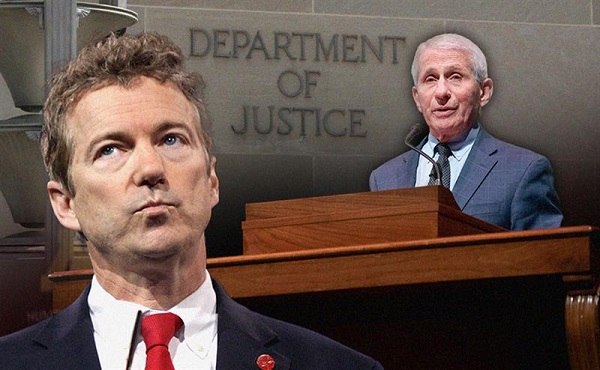
 COVID-192 days ago
COVID-192 days agoSen. Rand Paul: ‘I am officially re-referring Dr. Fauci to the DOJ’
-
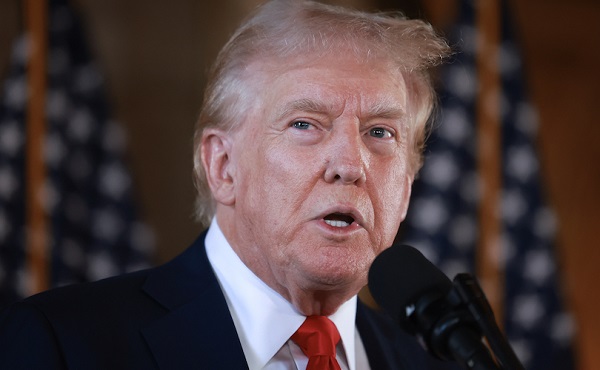
 Education2 days ago
Education2 days agoTrump praises Supreme Court decision to allow dismantling of Department of Education
-
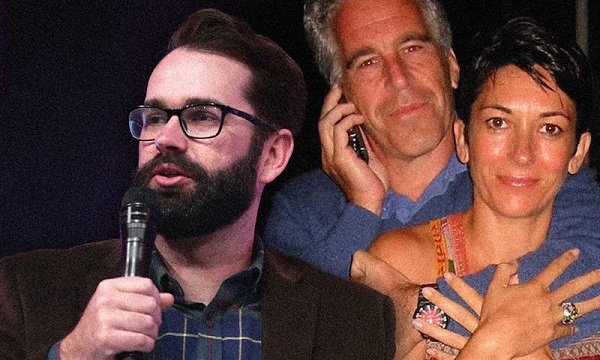
 International2 days ago
International2 days agoMatt Walsh slams Trump administration’s move to bury Epstein sex trafficking scandal
-
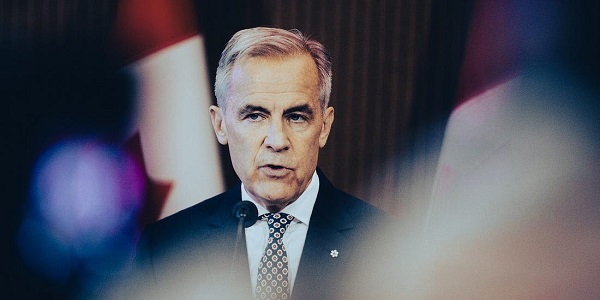
 National2 days ago
National2 days agoDemocracy Watch Blows the Whistle on Carney’s Ethics Sham
-

 Energy1 day ago
Energy1 day agoIs The Carney Government Making Canadian Energy More “Investible”?
-
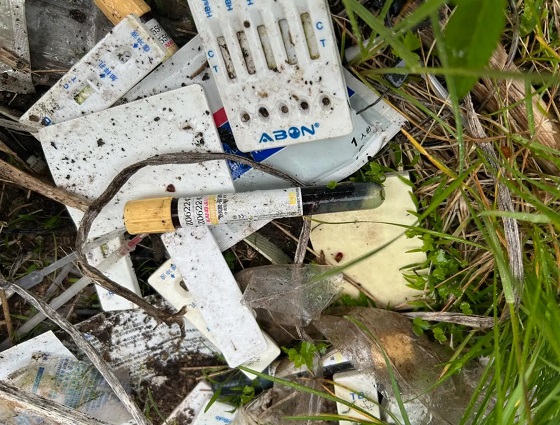
 Immigration1 day ago
Immigration1 day agoUnregulated medical procedures? Price Edward Islanders Want Answers After Finding Biomedical Waste From PRC-Linked Monasteries
-

 Business1 day ago
Business1 day agoDemocracy Watchdog Says PM Carney’s “Ethics Screen” Actually “Hides His Participation” In Conflicted Investments
-
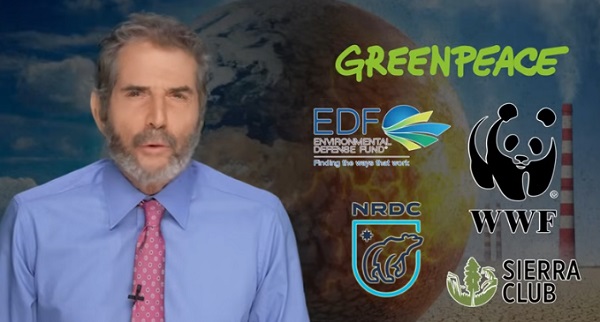
 John Stossel2 days ago
John Stossel2 days agoThe Green Industrial Complex: Power, Panic, and Profits






